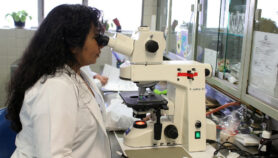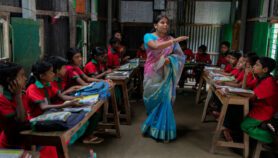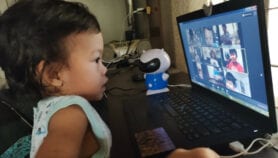Send to a friend
The details you provide on this page will not be used to send unsolicited email, and will not be sold to a 3rd party. See privacy policy.
[MANILA] The Philippine government is to create a testing centre for advanced devices and materials, hoping it will boost the semiconductor and electronics sector – the country’s main export industry — which saw a big drop in output last year.
The planned national testing laboratory, for which the government has allocated 300 million pesos (US$ 7.2 million), is designed to wean the electronics industry away from its costly and time-consuming practice of sending such materials abroad for testing.
Local and foreign-owned semiconductor companies in the Philippines currently send their samples to Malaysia, Singapore and the United States for analysis.
The Department of Science and Technology (DOST) recently said the laboratory for testing activities will be housed in a renovated building at the agency’s compound in Taguig City, a new ‘boomtown’ just east of Manila.
The semiconductor and electronics sector accounts for about half of the Philippines’ total exports, although revenue shrank by 23 per cent in the period January to November 2011 to US$22.3 billion, compared to US$28.8 billion the year before.
Scheduled for inauguration in December 2012, the local testing facility is hoped to help the industry return to growth and achieve its revenue target of US$50 billion annually by 2016.
Raul Sabularse, deputy director of the DOST agency responsible for the project, said the specifications of the high-end equipment are now being determined. In January, local suppliers and their foreign partners demonstrated some of their advanced testing equipment, such as a focused ion beam and an Auger electron spectroscope.
"With the help of our partners in the private sector, we hope to come up with the specs that are most useful to the industry,” Salubarse said. “Having a laboratory here will help attract investments," he added.
Among the deliverables of the project are the purchase and installation of equipment, the training of the staff who will run the national facility, trial operation, and the preparation of documents to meet ISO 17025 standards.
The staff designated to run the facility will be trained by industry partners of the project, as well as by foreign suppliers.
Antonio Villaflor, director in quality and reliability at STMicroelectronics, Inc., one of world’s leading semiconductor firms, welcomed the government’s move, saying that it sends an important message of support to the semiconductor industry.
"We expect the highest level of competence in managing the laboratory with adherence to national standards and meeting the short cycle time requirements of the industry," he said.













